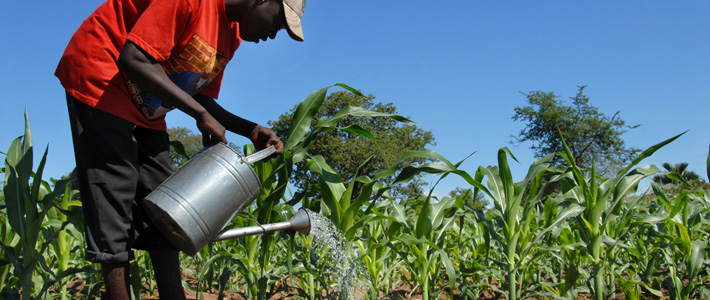
Africa is expected to be the next target of GM food companies, as European scientists and policymakers travel to Ethiopia to boost the prospect of growing more of the controversial crops on the continent.
EXCERPT: Critics…said the meeting was a thinly disguised attempt to promote GM farming at a governmental level, whether or not it was good for local farmers.
"The meeting has the appearance of giving the European stamp of approval on GM crops, even though the majority of EU citizens oppose GM in food," said a spokeswoman for GM Watch, a UK-based NGO.
The talks take place as industry data shows the increase in the planting of GM crops has practically halted in the US and as G8 countries, led by the US and Britain, press African states to liberalise their farming as part of the New Alliance for Food Security and Nutrition initiative.
GM crops: European scientists descend on Africa to promote biotech
John Vidal, theguardian.com, 24 February 2014
* Delegation to meet Ghanaian, Ethiopian, Kenyan, and Nigerian farm ministers as well as officials from the African Union
Africa is expected to be the next target of GM food companies, as European scientists and policymakers travel to Ethiopia to boost the prospect of growing more of the controversial crops on the continent.
Anne Glover, the chief scientific adviser to the European commission, and other prominent pro-GM researchers and policymakers from European countries including Germany, Hungary, Italy, and Sweden will this week meet Ethiopian, Kenyan, Ghanaian, and Nigerian farm ministers as well as officials from the African Union.
The British environment secretary, Owen Paterson, who said last year that the UK would be acting immorally if it did not make GM crop technologies available to poor countries, pulled out of the conference in Addis Ababa, organised by the European Academies Science Advisory Council (Easac).
According to an Easac spokeswoman, the meeting is intended to help EU and African scientists collaborate to allow the crops to be grown more easily on the continent. "EU policy on GM crops is massively important for Africa," she said. "A lot of countries are scared to do any research. They fear they will be punished by EU restrictions. They depend on the EU for their exports."
Critics, however, said the meeting was a thinly disguised attempt to promote GM farming at a governmental level, whether or not it was good for local farmers.
"The meeting has the appearance of giving the European stamp of approval on GM crops, even though the majority of EU citizens oppose GM in food," said a spokeswoman for GM Watch, a UK-based NGO.
The talks take place as industry data shows the increase in the planting of GM crops has practically halted in the US and as G8 countries, led by the US and Britain, press African states to liberalise their farming as part of the New Alliance for Food Security and Nutrition initiative.
The New Alliance is intended to accelerate African agricultural production, but farmers have widely criticised it as a new form of colonialism.
Olivier de Schutter, the UN special rapporteur on the right to food, has described Africa as the last frontier for large-scale commercial farming. "There's a struggle for land, for investment, for seed systems, and, first and foremost, there's a struggle for political influence," he said.
According to the International Service for the Acquisition of Agri-biotech Applications (Isaaa), South Africa grows GM food crops, and Burkina Faso and Sudan cotton. Seven other African countries – Cameroon, Egypt, Ghana, Kenya, Malawi, Nigeria, and Uganda – have conducted GM field trials. The first drought-tolerant genetically modified maize is expected to be grown on the continent in 2017, it says.
Annual figures from Isaaa show that US farmers planted 70.1m hectares (173m acres) of GM crops in 2013, less than 1% more than in 2011 and 2012. Latin American and Asian farmers grow more than half of the world's GM crops, mostly for animal feed or cotton production.
The latest figures show that 77% of the world's GM crops are grown in three countries – 40% in the US, 23% in Brazil and 14% in Argentina – with plantings in Europe and Africa negligible, and concern growing worldwide about the emergence of herbicide-resistant "superweeds".









